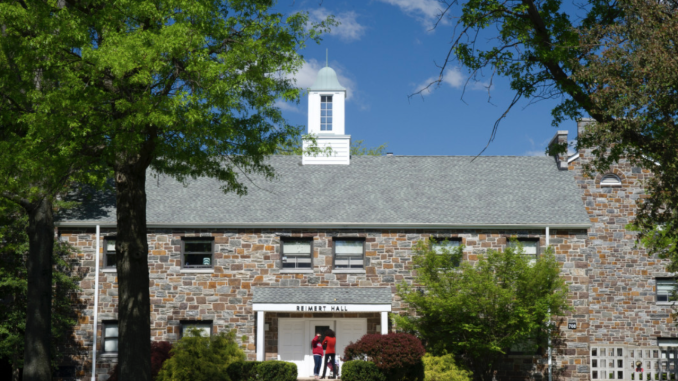
Last week, Alisa Zenchenko ‘25, the newly named President of the Class of 2025 after former President Mikki Pomatto transferred from Ursinus, started a petition on Change.org to garner student support around a proposed policy change to extend the hours of Reimert registered events from 1 a.m. to 2 a.m. In just one week, the petition amassed 140 signatures, which according to Zenchenko, is impressive considering “no advertising has been done.” While Zenchenko started the petition on her own, she then brought the idea to UCSG. From there, UCSG will determine if enough interest exists to pursue an official policy change.
Zenchenko believes that “registered events are turning more into networking opportunities.” She explained, “It’s how you’re going out and meeting people, but having restrictions put on that. . . limits the amount of people that students are talking to and being exposed to.” The restrictions in question were actually implemented by the school two years ago, as registered Reimert events used to stay open until 2 a.m. According to Dean of Students, Missy Bryant, the policy changed because Ursinus “wanted to create consistency between events on Main Street and events in Reimert.” Main Street events close at midnight, due to their proximity to the residential community as well as the dangers that Main Street traffic poses to students traveling home from late night parties.
Bryant also explained that another major factor in the policy change was “student conduct incidents that happened on campus” between the hours of 1 a.m. and 2 a.m. Bryant reports that the shortening of party time in Reimert “has tremendously decreased [student conduct] incidents,” but Zenchenko and other supporters of the petition say that decrease has come at the cost of students’ fun. Zenchenko says the shortened party time gives off the impression that “there’s a major disconnect between the administration and the students,” and that “the administration is kinda out to get them, especially with registered events.”
Some disconnect between the students and administration may be inevitable at any college. Bryant, however, points to Event Director training courses, pre-party meetings between Campus Safety officers and Event Directors, and a class on how to be a “responsible partygoer,” as examples of Ursinus’s attempt to bridge that gap between students and administration in regards to parties.
From the students’ view, the rules and regulations surrounding “Registered Events” make parties feel supervised, which is understandable considering the lack of administration involvement in partying at non-residential colleges, unlike Ursinus. But due to legal liabilities of parties taking place on school grounds, Bryant explained, “If we’re talking about having an event with alcohol on campus, there’s always going to have to be some administrative process that goes into place.”
Zenchenko and others may understand rules around parting are needed to protect the students and school alike, but the return to a 2 a.m. closing time in Reimert registered events “would give something to the students. It would kind of be, I don’t wanna say a token offer, but it would be, if this was to get approved.” In a state of partying regulation, increasing the registered event hours by just one more hour does not seem like a large ask, especially if the school allowed it in previous years.
Bryant, however, said that would “be a conversation that’s beyond just me. There’s a lot of stakeholders.” Until student opinion is solidified, no current plans exist to explore the idea of extending the hours of registered events until 2 a.m. The Grizzly will be sure to update readers on any developments in the potential policy change proposed in the petition.
Chase Portaro chportaro@ursinus.edu
